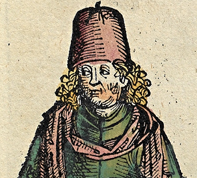Why YSK: I’ve noticed in recent years more people using “neoliberal” to mean “Democrat/Labor/Social Democrat politicians I don’t like”. This confusion arises from the different meanings “liberal” has in American politics and further muddies the waters.
Neoliberalism came to the fore during the 80’s under Reagan and Thatcher and have continued mostly uninterrupted since. Clinton, both Bushs, Obama, Blair, Brown, Cameron, Johnson, and many other world leaders and national parties support neoliberal policies, despite their nominal opposition to one another at the ballot box.
It is important that people understand how neoliberalism has reshaped the world economy in the past four decades, especially people who are too young to remember what things were like before. Deregulation and privatization were touted as cost-saving measures, but the practical effect for most people is that many aspects of our lives are now run by corporations who (by law!) put profits above all else. Neoliberalism has hollowed out national economies by allowing the offshoring of general labor jobs from developed countries.
In the 80’s and 90’s there was an “anti-globalization” movement of the left that sought to oppose these changes. The consequences they warned of have come to pass. Sadly, most organized opposition to neoliberal policies these days comes from the right. Both Trump and the Brexit campaign were premised on reinvigorating national economies. Naturally, both failed, in part because they had no cohesive plan or understanding that they were going against 40 years of precedent.
So, yes, establishment Democrats are neoliberals, but so are most Republicans.


I think the confusion, in part, stems from the fact that if someone proclaims they are “a liberal” it often turns out they care mostly or exclusively for economical liberalism. At least that’s my impression when talking to people.
The confusion comes because “liberal” is a very nebulous word that can mean very different things.
In terms of political ideology, there are three main types that generally exist in Western democracies.
Classical liberalism - emphasizes individual freedom, limited government intervention in the economy, and the protection of natural rights, such as life, liberty, and property.
Neoliberalism - emphasizes free markets, deregulation, privatization, and reduced government intervention in the economy.
Social Liberalism - combines the values of individual freedom with a belief in the role of government in addressing social and economic inequalities through healthcare, education, and welfare programs.
Typically these days, especially in the US, most people think of #3 when they hear the word “liberal” in a political sense, I’d say.